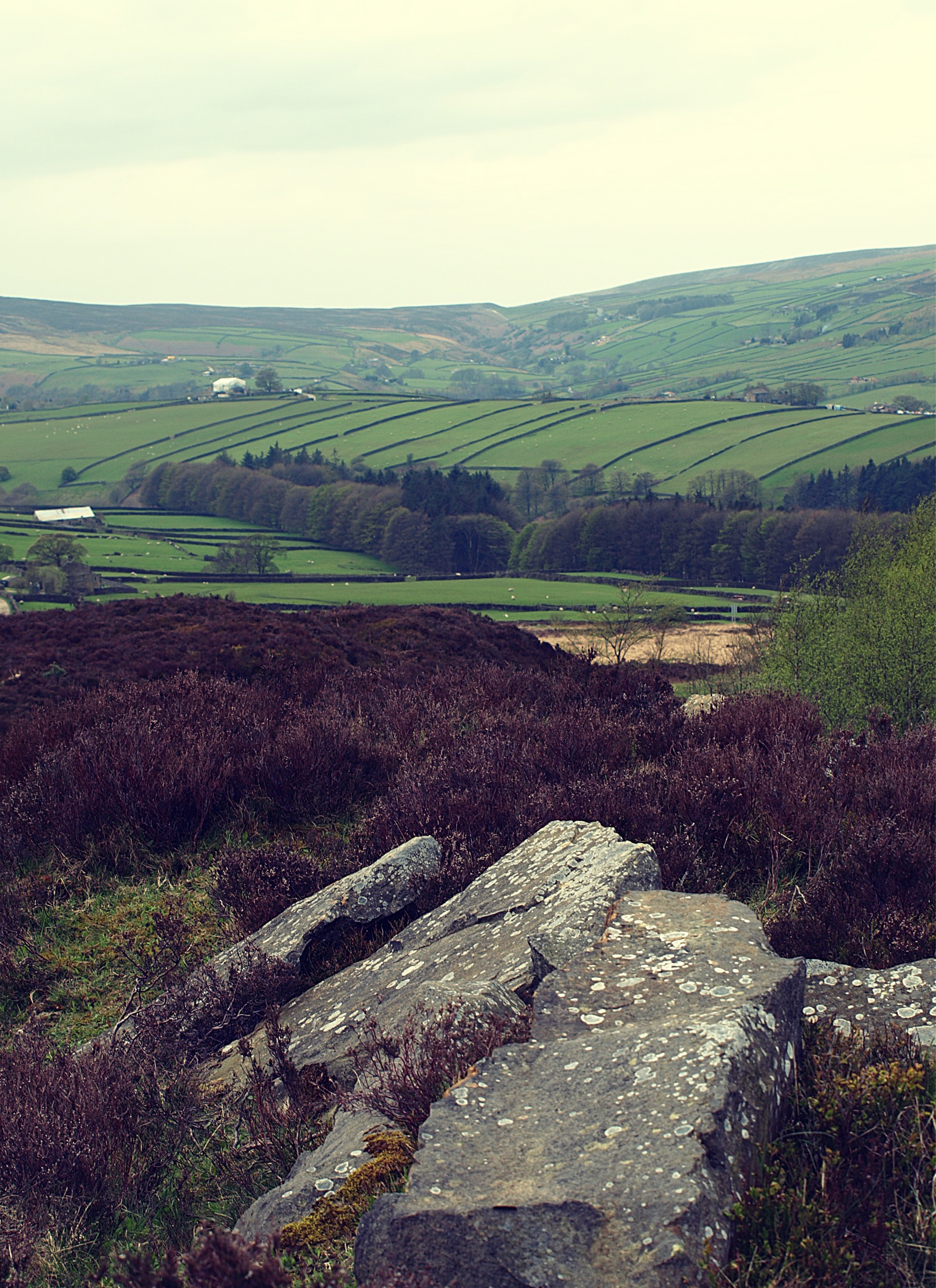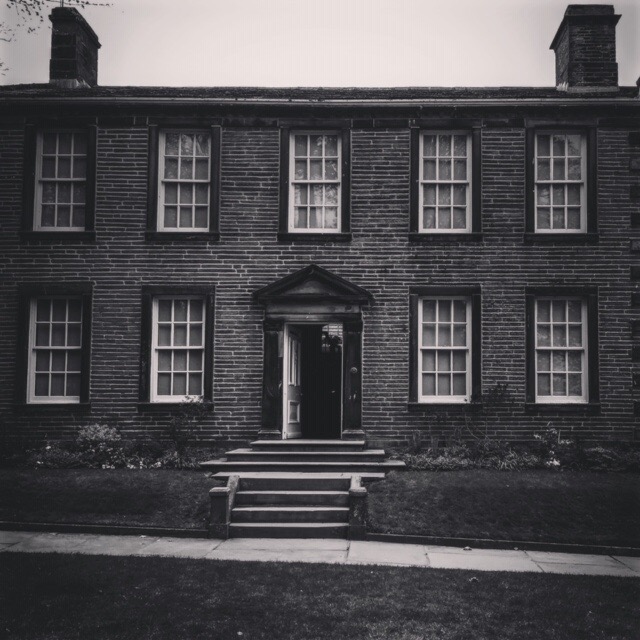May, 3, 2018
Haworth, England
I’d managed to misjudge my arrival and now the whole Brontë museum was swarming with school parties; little children eager for a day away from school but too young to really understand the Brontë legacy. This was the second time I’d visited Haworth and I felt the same sudden anti-climax at the ordinariness of the parsonage; how it was a real brick building on a real street in a real town. The Haworth parsonage of my imagination was battered by a cruel easterly wind and brooded under a sky reflecting the bruised blush of the surrounding moorland. And yet, here it was, the sun shining on the slate roof, the sound of crows and cars mingling with the laughter of school children.
Today’s visit was part research, part pleasure. It was a pilgrimage, of sorts, for Emily Brontë’s 200th birthday. I’d planned to get here early, before opening time, so that I could be the first one into the museum. I wanted to experience the Brontës on my own terms, without worrying about saying the wrong thing to someone or being distracted by the noise of people. I failed. I’m an anxious person, I get twitchy around people. I feel like I don’t know the rules of interaction which seem to come so easily to others. As a writer I am almost permanently ensconced in my home office, hunched over my computer. I live in a little village on the Yorkshire coast, where I can go days without exchanging a word, except for the conversations I have with my dog and cat. I like it that way. I fretted in the kitchen until finally forcing myself out the door, two hours later than I should have.
I got out of the car, locked it, checked I had my copy of Wuthering Heights and Emily Brontë’s poems, and walked down the narrow cobbled road to the museum entrance, hoping I’d left it long enough that the children would be far in front of me. Inside, the Brontë parsonage, now a museum to the Brontë family, felt claustrophobic. I pictured the three sisters compulsively walking round the dining room table reading their stories to each other. I stood looking into the hallway, picturing Branwell Brontë drunkenly slumped by the curve of the balustrade, the reverent Patrick slamming the parlour door open and squinting into the dim lamp light. A man next to me pushed forward with his camera, bursting my bubble in the process. Behind me, the front door swung open and the next party of children came in, shouting and being shushed and milling around my waist as if I didn’t exist. I moved upstairs to the bedrooms where Emily’s dress had been posed inside a glass cabinet. Standing in front of the glass my image was reflected back, Emily’s red dress overlaying my jeans and T-shirt, my short neck where her slender one would be.
In the extended museum I was thrilled to see Emily’s writing desk, her collection of trinkets and toys, her pet dog’s collar. Then later, her stockings and her hair, braided into a grief bracelet with her sister’s. I imagined Emily, who resisted constriction of any kind, even refusing to wear a corset, would not have liked the compartmentalising of her life.
Lunch was a warm, pre-packed sandwich. I sat in the car to eat, rather than in one of the quaint cafes on the main street, and listened to the car radio. It was too late in the day to walk over to Top Withens, the ruin associated most with Wuthering Heights , but not too late to go walking on the moors. After a couple of false turns I made my way through the slope of the cemetery, opening a creaking kissing gate and up another narrow path which rose steeply, and then I was out on the moors. There were a few people dotted about on the horizon, but mainly I was alone. Even here, right in the heart of Brontë Country I still felt a disappointing disconnect from Emily and her sisters.
When I first read Wuthering Heights I was twelve or thirteen. I struggled with the concept of an anti-hero, the viewpoint that the world was not simply defined as bad or good. The next time I read it I was in my twenties, freshly broken up from an ex-boyfriend and looking for the comfort of something familiar. Then it was Cathy and her chaotic, wild heart that I found solace in, and her love of the outside. I read it again when I was in my thirties and studying towards my BA in English literature, hoping to be a writer, but worried my anxiety and “otherness” would stop me. This time I researched the Brontës, especially Emily, and found someone who got homesick, wasn’t great with people, and just wanted to live a life of writing and walking and being who she was. I could now picture her more clearly, thanks to the beautifully curated museum, but I still couldn’t feel her.
And now here I was on the perfectly signposted chalk road, being shepherded from one end of the Brontë experience to the other. In frustration I jumped off the path and onto the spongy moorland, finding a sheep path which led up a craggy rock face. It meant half walking, half hoisting myself up. I didn’t look behind me, I didn’t look at what was happening to my nice new jeans, my clean shoes. I just climbed up until I reached the top. The wind was getting up, rolling the clouds across an impossibly wide sky and the the sun was getting low. Down in the town the lights were coming on. Up here there was only the curlew’s call, high and lonely as could be, and the endless cloud-shadowed moor. I sat down on the slightly damp ground and felt suddenly at ease, as if I was in my natural environment.
And that’s where I found Emily, Charlotte, Anne and Branwell too. Looking down to that town, its people, the parsonage; that sardine-tin of tuberculosis and grief, creativity and drug addiction. They must have looked down into their lives and felt so trapped, in a world that didn’t suit them and roles they didn’t ask for. I felt we were here together, in the absolute freedom of the outside, with a shared love for words. I took out my poems and read one, for Emily, then made my way back down to the brightly lit carpark and the long drive home.

Wendy Pratt





